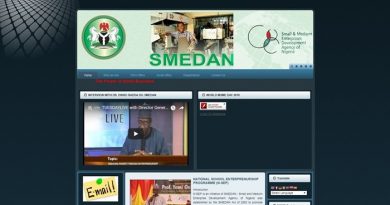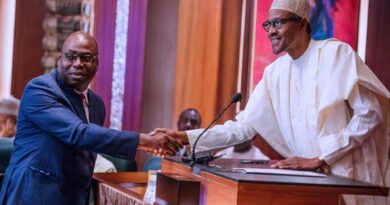Subsidy Removal: Tinubu out with plans to ease hardship
- says “Nigerians will benefit over N1trn saved from subsidy removal”
President Bola Tinubu on Monday highlighted his administration’s plans to ease hardship faced by Nigerians following the removal of petrol subsidy even as he revealed that more than N1 trillion has been saved in the two months that petroleum subsidy has been removed.
In a nationwide broadcast, the President reiterated his hope agenda, including creating jobs, supporting businesses, alleviating poverty and revamping the economy.
His broadcast came on the heels of the planned protests and strike by the Nigerian Labour Congress (NLC), scheduled to commence on Wednesday, August 2.
Subsidy removal has tripled fuel prices nationwide – from N195 to the current N615, with a resultant astronomical rise in transport, food and other basic needs costs.
However, Tinubu said his government had saved over one trillion naira within two months it ended the subsidy regime in his Monday broadcast.
“This once beneficial measure had outlived its usefulness. The subsidy costs us trillions of naira yearly. Such a vast sum of money would have been better spent on public transportation, healthcare, schools, housing and national security. Instead, it was being funnelled into the deep pockets and lavish bank accounts of a select group of individuals.
“This group had amassed so much wealth and power that they became a serious threat to the fairness of our economy and the integrity of our democratic governance. To be blunt, Nigeria could never become the society it was intended to be as long as such small, powerful yet unelected groups hold enormous influence over our political economy and the institutions that govern it.”
He said the former administration of President Muhammadu Buhari made no funds available in the 2023 Appropriation Act for subsidy.
Speaking on his plans to cushion subsidy removal pains, Tinubu said early in July, he signed four Executive Orders in keeping with his electoral promise to address unfriendly fiscal policies and multiple taxes that stifle the business environment.
According to him, the suspension and deferred commencement of some taxes would provide the necessary buffers and headroom for businesses in the manufacturing sector to continue to thrive and expand.
Some of the policies to cushion the effect of fuel subsidy removal and revamp the economy are strengthening the manufacturing sector by increasing its capacity to expand and create good-paying jobs by injecting N75 billion into the sub-sector between this month, 2023 and March 2024.
The objective is to fund 75 enterprises with great potential to kick-start sustainable economic growth, accelerate structural transformation and improve productivity.
Each of the 75 manufacturing enterprises would access one billion naira credit at nine per cent per annum with a maximum of 60 months of repayment for long-term loans and 12 months for working capital, noted Tinubu.
The government will reinvigorate micro, small and medium-sized enterprises and the informal sector with N125 billion. Out of the sum, it will spend N50 billion on conditional grants to one million nano businesses between July and March 2024.
“Our target is to give N50,000 each to 1,300 nano business owners in each of the 774 local governments across the country,” said Tinubu.
It will drive further financial inclusion by onboarding beneficiaries into the formal banking system.
In addition, the government will fund 100,000 MSMEs and start-ups with N75 billion. Under this scheme, each enterprise promoter can get between N500,000 to one million naira at nine per cent interest per annum and a repayment period of 36 months.
Tinubu said that to ensure that food item prices remain affordable, he ordered the release of 200,000 metric tonnes of grains from strategic reserves to households across the 36 states and FCT to moderate prices.
“We are also providing 225,000 metric tonnes of fertiliser, seedlings and other inputs to farmers committed to our food security agenda.”
He explained that his administration would support the cultivation of 500,000 hectares of farmland and all-year-round farming practice.
“To be specific, N200 billion out of the N500 billion approved by the National Assembly will be disbursed as follows: our administration will invest N50 billion each to cultivate 150,000 hectares of rice and maize. N50 billion each will also be earmarked to cultivate 100,000 hectares of wheat and cassava.”
He recalled his government’s launch of the Infrastructure Support Fund shortly after the subsidy removal to enable states to have more funds to invest in critical areas, including health and education.
Tinubu said part of his agenda was to roll out buses across the states and local governments for mass transit at a much more affordable rate.
To achieve this aim, his government would invest N100 billion between July and March 2024 to acquire 3,000 units of 20-seater CNG-fuelled buses.
He stated that the buses will be shared with major transportation companies in the states, using the intensity of travel per capita.
He stressed that participating transport companies would access credit under the facility at nine per cent interest per annum with 60 months repayment period.
Besides, the President said the government was working to review workers’ salaries and would make funds available for its implementation immediately after it is done.




